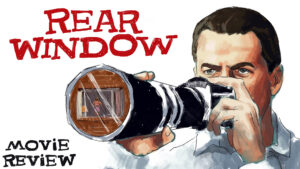If you haven’t seen this documentary, clear your schedule. “13th,” a 2016 Netflix documentary directed by Ava DuVernay, breaks down racial justice issues surrounding mass incarceration, police brutality and race relations over the course of American history. The film has garnered critical success since its release; it was nominated for Best Documentary Feature at the 89th Academy Awards, awarded the Emmy for Outstanding Documentary or Nonfiction Special at the Primetime Emmy Awards, and clocks in at 96 percent fresh on Rotten Tomatoes.
The documentary, named for its examination of the 13th Amendment to the United States Constitution, begins with a quote from former U.S. President Barack Obama, saying, “So let’s look at the statistics. The United States is home to five percent of the world’s population, but 25 percent of the world’s prisoners. Think about that.” The United States has held the record for the highest rate of incarceration in the world for 16 years now. It’s the perfect way to set the stage for this documentary.
The documentary relies on a plethora of scholars, activists, politicians and more to explain the complex nature of the 13th Amendment. Although many regard the Amendment (which was passed by Congress on Jan. 31, 1865) as a progressive revolution for African Americans, there is a very complex loophole that DuVernay highlights. The Amendment reads, “Neither slavery nor involuntary servitude, except as a punishment for crime whereof the party shall have been duly convicted, shall exist within the United States or any place subject to their jurisdiction.”
Due to the fact that slavery was an economic system crucial to the Southern economy and the ever-present racism and prejudice installed in our society, this clause was “immediately exploited.” The four million newly freed African Americans were immediately targeted with crimes like loitering, vagrancy and various others and imprisoned indefinitely. This was our nation’s first, but not last, prison boom.
This was also the birth of “the mythology of black criminality,” explained in depth in the film. African Americans were heavily stereotyped as unintelligent, greedy and violent. The film featured clips from “The Birth of a Nation,” America’s first blockbuster motion picture. It can be jarring to see the blatant racism and prejudice exhibited in the film, infamous for portraying the Ku Klux Klan members as the film’s heroes. During this time, the era of Jim Crow, thousands of African Americans were murdered in lynch mobs, described in the film as “another wave of terrorism.”
The film progresses through the civil rights movement into the 1970s, in which “we began an era which has been defined by this term mass incarceration.” The U.S. prison population has skyrocketed from then till now, going from roughly 357,000 in 1970 to over 2 million in the year 2017.
The film identifies a contributing cause of this in Nixon’s “War on Drugs” as a turning point, saying “that utterance gave birth to an era where we decided to deal with drug addiction and drug dependence as a crime issue rather than a health issue.”
The documentary paints a clear picture of an issue that demands our full attention. “The New Jim Crow” author Michelle Alexander, civil rights activist Angela Davis, New Jersey State Senator Cory Booker and Alphonse Fletcher University Professor Henry Louis Gates, Jr. are just a few of the many experts featured, and all contribute strong arguments on the topic of racial justice. With the help of statistics, visuals, graphs, clips and expert testimonials, the film breaks down these imperative issues so clearly it will leave you emotional. You will feel angry, confused, betrayed, hurt and lost. That is to be expected. You are being educated on issues that are not yet resolved. You need to channel that anger into action. Now is the time for change. Understand the role you play in this issue. Strive to make a difference.
This documentary is a must-see for all Americans. It should be taught in schools. It should be played in theaters. It should be screamed from the mountaintops. But first, you must watch it. February is Black History Month. What better way to commemorate it than by educating yourself on issues that are happening right now?









